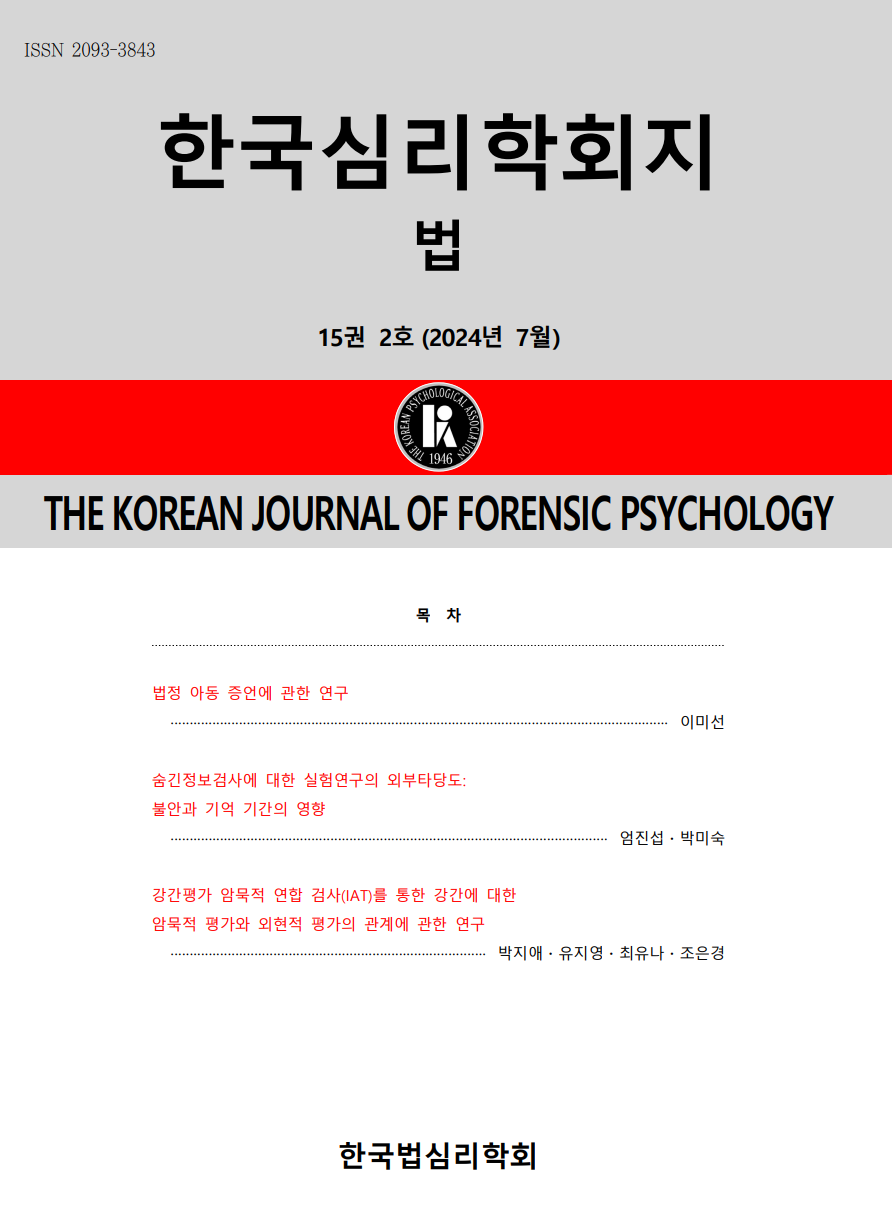open access
메뉴
open access
메뉴 ISSN : 2093-3843
ISSN : 2093-3843
The purpose of this study is to examine empirically how the lay people judge self-defense and what factors could affect it. A total of 651 participants aged 20 years and over were asked to answer, attitude toward interpersonal violence, and legal attitude questionnaire, all divided by the type of self-defense. Participants were assigned one of the three types of situations that were claimed to be self-defense, and were given articles and scenarios related to each type of self-defense before making self-defense judgments. In addition, the impact of personal factors on self-defense judgment was analyzed after the legal attitude, and the attitude toward interpersonal violence, which are personal factors, was also measured. The results showed that the rate of recognition of self-defense was the highest in the type of self-defense for oneself, but the rate of denial of self-defense against state agencies was much higher, indicating the opposite. Furthemore, negative articles on self-defense were found to affect the judgment of self-defense. In addition, it was found that the level of the attitude toward interpersonal violence and legal attitude of individual participants could affect the judgment of self-defense. The general public's judgment process and the factors that affect self-defense judgment may be considered to prevent biased judgment in actual jury trials. Finally, influence, and limitations of this study and suggestions of subsequent study were also discussed.